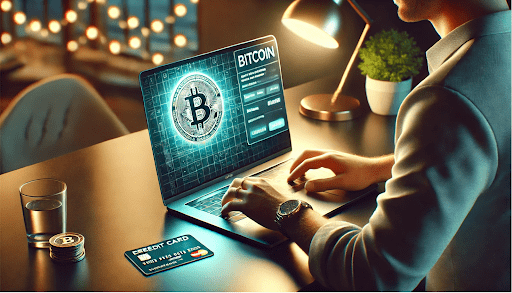In the twenty-first century it is hard to imagine a person that doesn’t have a profile on popular networks like Instagram, Facebook, or Twitter. Social media have implanted themselves into our daily life and stimulated changes in human behavior. Nowadays the number of likes is leverage not only for business but for public acceptance as well. This topic is a delicate one, as the research on it continues. This article will help you to find the main aspects of popularity on social platforms that affect the human brain.
It is no secret that being popular is a wish for many people. Before the rise of social platforms, societal popularity could be regarded within a certain amount of acquaintances. The development of social media has given the opportunity to jump over that. To become popular online you don’t have to be personally familiar with all your subscribers. All you have to do is be yourself and eventually, your audience will find you.
THE SELF-ESTEEM AND HOW LIKES WORK WITH IT
In modern society the “like” is an instrument to show your positive attitude. It has become a silent gesture of support. So it is obvious that grossing many likes equals receiving positive social feedback. Like is a sign that the information that you share is noticed and approved by other people. That is one of the things that can enhance self-esteem very effectively. So people become obsessed with obtaining as many likes as it can possibly be. And to do that, you need followers, who will deliver you these likes. More followers – more likes – more fame – more followers, and so on it goes. The most common ways for this goal are:
-
- Participation in different activities on the Internet (e.g. popular hashtags Follow4follow, Likes4likes on Instagram)
- Collaboration with other popular users
- Asking people to subscribe directly (works generally for YouTube)
- Paid promotion. This method has its pros and cons, but no one can deny that it is a fast way to reach your goals. The main tip is not to get carried away. At the beginning, you should stick with lesser numbers for better quality. Try to buy 50 Instagram followers for starters, this will be perfectly enough (visit here for more info).
Of course, there is a dark side to such an impact on human self-esteem. Sometimes people become stuck on the numbers and start a mindless race for enlarging them. That leads to arrogance and an irrelevant image of the world. Losing measures is dangerous because you can lose a connection to real life.
WHY DO WE FEEL THAT WE NEED MORE LIKES
 According to the research, receiving likes on social platforms stimulates your brain to produce and release hormone dopamine which activates the part of the brain that stands for rewarding. Simply talking, getting another like makes you feel content. Nowadays social media are believed to replace smoking on its pedestal of most common addiction. That is because the reaction from achieving more likes is similar to the pleasure of eating a favorite food, exercise, drugs, or gamble.
According to the research, receiving likes on social platforms stimulates your brain to produce and release hormone dopamine which activates the part of the brain that stands for rewarding. Simply talking, getting another like makes you feel content. Nowadays social media are believed to replace smoking on its pedestal of most common addiction. That is because the reaction from achieving more likes is similar to the pleasure of eating a favorite food, exercise, drugs, or gamble.
There is another thing that makes our brain go bananas with dopamine, and social media can affect it from the positive side. It is love. Social platforms help us to keep in touch with our family, friends, and beloved ones. And like is the tool to show your attention. This simple double-tap says: “Yes, I have seen your post, I know that you are okay and have a good time, wherever you are”. Isn’t it nice?
Craving more dopamine is natural. But it is important to stay in control of your time spent online and keep it in balance with your real-life experience.
FOMO AND HOW TO AVOID IT l
People spend very much time on social platforms and it can affect their life very hard. The Fear Of Missing Out was introduced in 1996, but it is becoming a serious problem with the rapid development of social media. The name speaks for itself. FOMO is a component of SM addiction. The most common “symptom” of it is a compulsive habit – constantly checking your phone for new notifications. Another marker of this state is the inability to control how much time you spend on social platforms and exaggerated anxiety when not being online. That can lead to severe situations, like texting while driving, being not attentive at work, and complete disregard of real-life connections.
To prevent yourself from FOMO and social media addiction, remember these tips:
-
-
- Always control your time online and aim for reducing it
- Fight the urge to check your phone all the time, especially when meeting someone offline
- Nothing is gonna happen if you don’t see that post from that blogger at the very second it was uploaded
- Spending time with your family is way more important than scrolling your newsfeed
- Posts about a concert you attended, your dog’s birthday party, or college reunion can be uploaded after the actual event ends
- Not every minute of your daily life should be recorded for Instagram Stories
-
THE PROBLEM OF PERCEPTION

“Perfection is a disease of a nation”
BEYONCÉ
The possibility of social networks to create the perfect image leads to the wrong perception of reality. Social media provides us with the possibility to keep in touch with our friends and family, but at the same time, we all see the picture-perfect version of someone’s life. Watching popular lifestyle bloggers is akin to watching some kind of soap opera. People that are now called influencers seem always having a good time, eating the best food, wearing the most trendy clothes, having the fittest body, and doing only what they want. Enormous numbers of likes are usually coming along such posts. As stated above, likes are the tool that shows public acceptance of behavior patterns. The factor of comparison is much stronger within social media.
The toxic aspect of good looks is dominating online and kids and young adults are at risk. They begin seeking ways for becoming the same as their favorites and find peace only when they receive feedback – growing numbers of likes to prove their worth. In most severe cases the addiction to the idea of perfection leads to eating disorders and depression. Only in recent 3-5 years, it has been diluted with body-positive communities which proclaim that perfection is a lie.
RESOLUTION
By 2020 social networks have implemented deeply in our daily life and stimulated changes in human behavior. We have obtained a new method for producing dopamine splashes into our brains. Social media has both a good and bad impact on us. And in the future we need to bring attention to the balance between our online and offline life.
-
Acting - /10
0/10
-
Cinematography/Visual Effects - /10
0/10
-
Plot/Screenplay - /10
0/10
-
Setting/Theme - /10
0/10
-
Watchability - /10
0/10
-
Rewatchability - /10
0/10


















